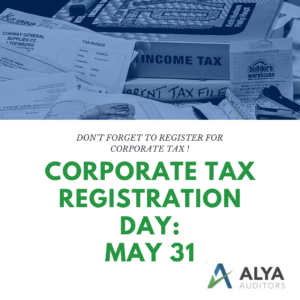
Is it mandatory to register for corporate tax in UAE?
Is it mandatory to register for corporate tax in UAE? All taxable persons are required to register for UAE Corporate Tax and obtain a Corporate Tax
Home » CRS Common Reporting Standards in the UAE
In 2010, the United States enacted FATCA to increase income tax reporting by US taxpayers on assets held in offshore accounts and through “Non-US Entities”.
FATCA, which was aimed at preventing tax evasion by US citizens, the OECD’s Common Reporting Standard (CRS), came into effect on 1 January 2016. This will be the standard for the automatic exchange of taxpayer information by a number of source -countries to the residence countries, i.e. from where is invested to where the investor is tax resident.FATCA imposes new reporting and withholding obligations on foreign financial institutions and certain other foreign persons which must be complied with in order to avoid a 30 percent US withholding tax on certain US-source payments and “passthru” payments that such non-US persons receive.
he Global Forum on Transparency and Exchange of Information for Tax Purposes is the multilateral framework within which work on transparency and exchange of information for tax purposes has been carried out by both OECD (Organization for Economic Co-operation and Development) and non-OECD economies since 2000.
In the context of the financial crisis that developed in 2008, the G20 called for actions against non-cooperative jurisdictions, including tax havens.
Since its restructuring in 2009, the Global Forum has become the key international body working on the implementation of the international standards on tax transparency.
The Global Forum ensures that the high standards of transparency and exchange of information for tax purposes are in place around the world through its monitoring and peer review activities.
There are two internationally agreed standards on exchange of information for tax purposes:
In 2013, the G20 endorsed AEOI, followed up by the approval of Common Reporting Standard (CRS) in 2014. The global model of automatic exchange of information has been drafted with respect to financial account information.
CRS has been designed to maximize efficiency and reduce costs for financial institutions and draws its approach extensively from the FATCA implementation.
CRS as a reporting regime covers a broad scope across three dimensions:
The UAE has committed to implement the CRS, with the first exchange to take place by September 2018
The UAE CRS Guidelines can be found here.
More information on the CRS can be found here.
Alya Auditors is a leading DMCC registered audit firm with a strong presence in the local business community and is well known for its quality of service delivery. Alya Auditors serves businesses in the UAE with their experience in auditing, accounting, and VAT in the UAE. We have mainly developed our business through small and medium-sized companies and we work closely with key authorities across all jurisdictions in UAE including DMCC.
Our team of professional auditors works closely with clients to take care of financial statements and to make sure all the audit-related requirements are met proficiently.
You can consult with one of our team members for a quick consultation related to audit or any other business-related matters.
Apart from the above services we are also helping the companies and businesses in the UAE to file their ESR notification.
Learn more about Alya Auditors and its offerings.

Is it mandatory to register for corporate tax in UAE? All taxable persons are required to register for UAE Corporate Tax and obtain a Corporate Tax

Scope of UAE Corporate Tax: What You Need to Know The upcoming UAE Corporate Tax (CT) will impact a broad spectrum of businesses and individuals.

Navigating Crypto Auditing in the UAE: Ensuring Compliance and Security in the Digital Age Crypto auditing in the UAE is becoming increasingly critical as the

Get Note on the Crucial Documents for UAE Corporate Tax Registration Transitioning seamlessly into compliance, businesses and qualifying free zone persons in the UAE are
Truly, let us know what service you are looking for and hence we can get back to you with more details.
Silver Tower, Business Bay. PO Box: 41102, Dubai, UAE.
Sharjah Airport Free Zone PO Box: 120403 Sharjah, UAE.
+971 48769377
+971 52 9750690 , +971 50 522 1035
Mon – Fri : 8:30 AM – 6 PM
Saturday – 9 AM – 5 PM
Sunday – Closed
© Alya Auditors 2022 All Rights Reserved